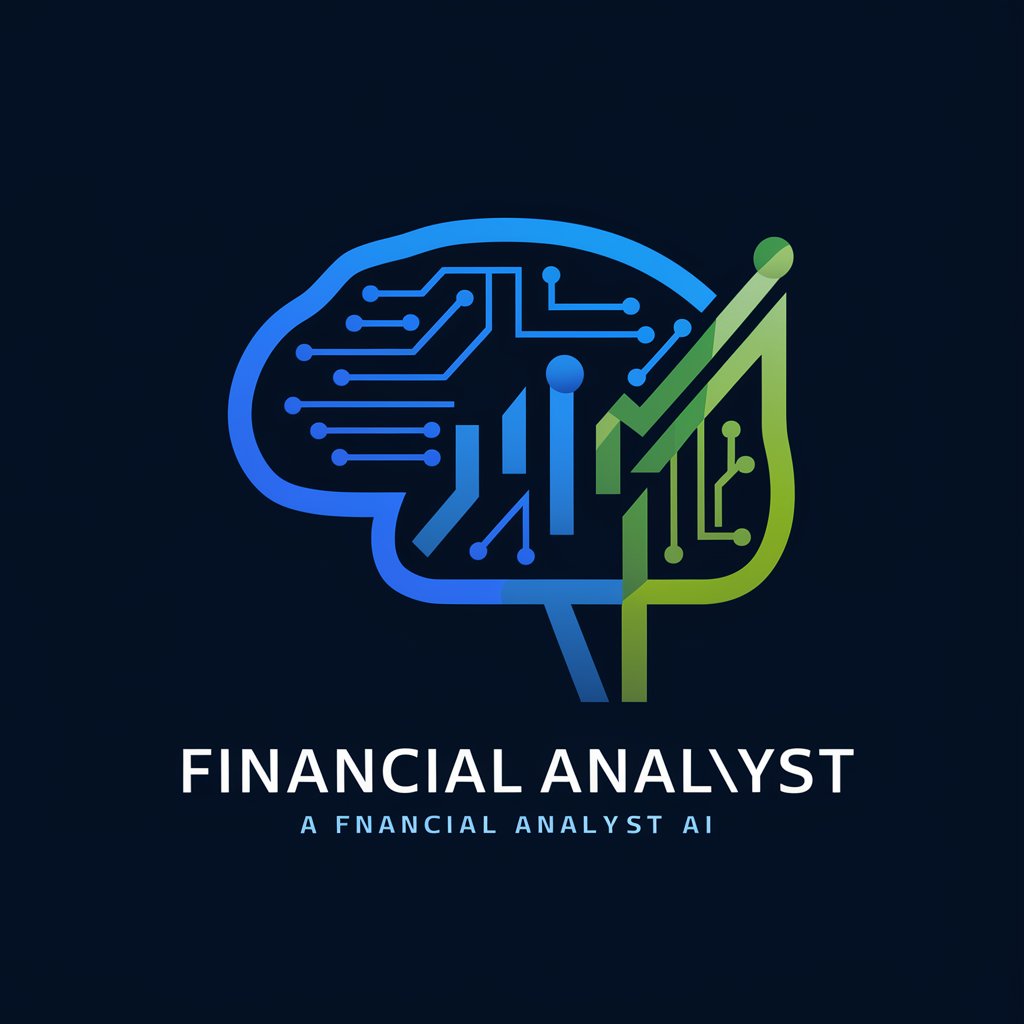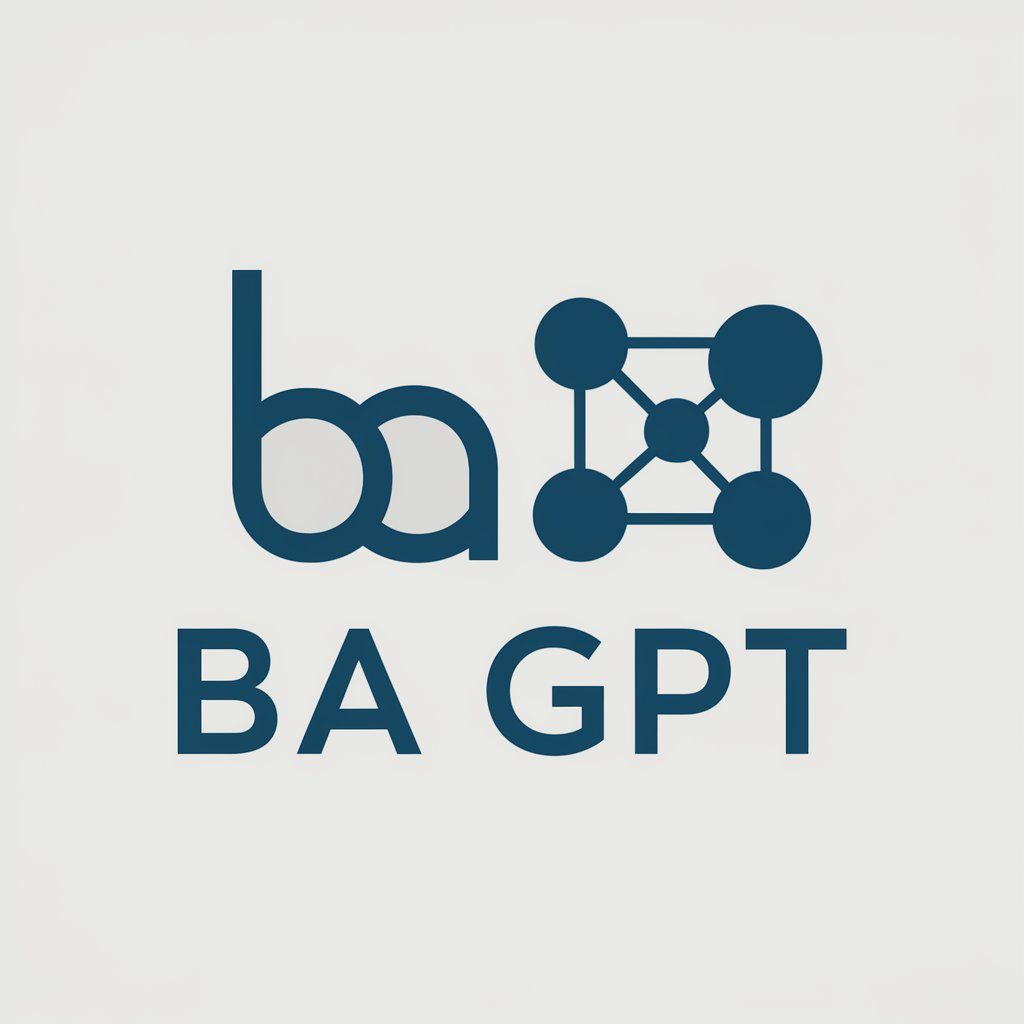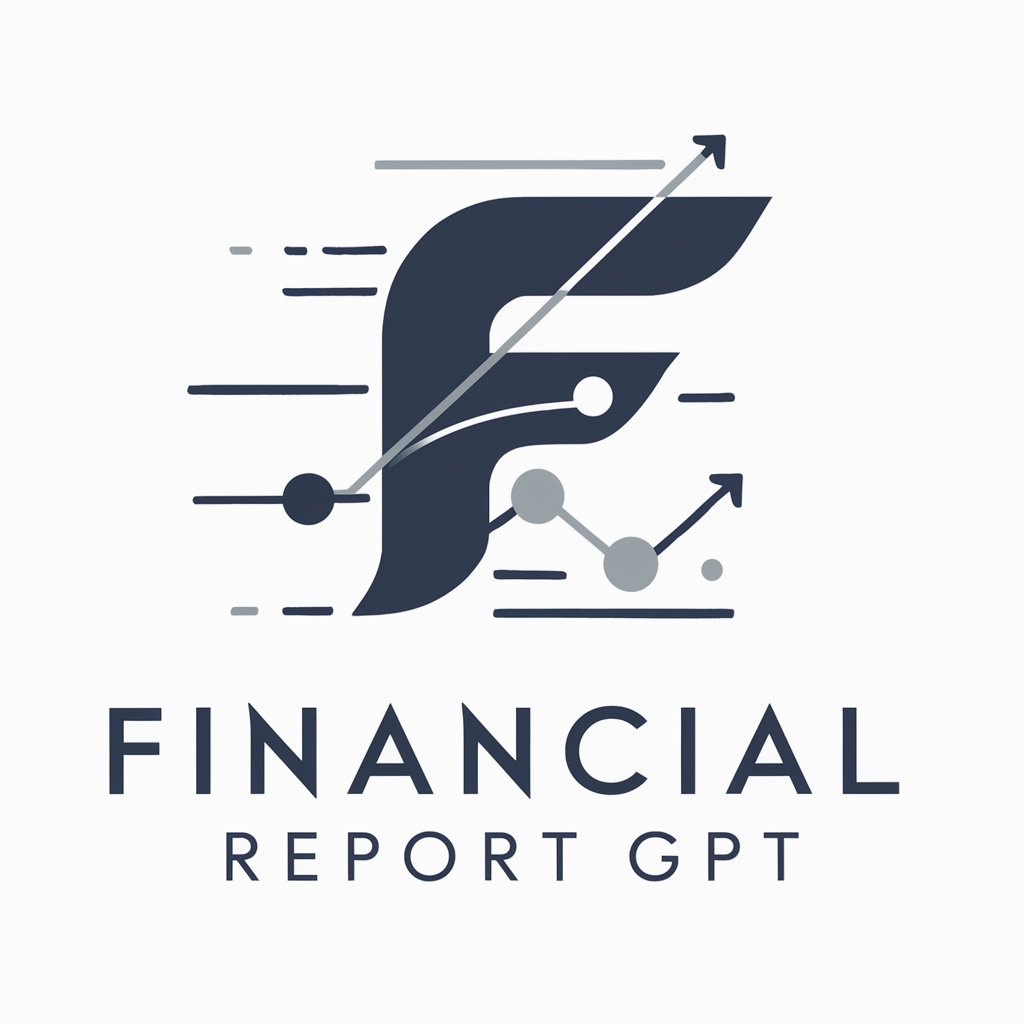
Financial Analyst GPT - Financial Insight Generation

Welcome! Let's dive into financial insights and market predictions.
Empowering financial decisions with AI
Analyze the current financial trends in the technology sector, focusing on...
Create a dynamic dashboard that visualizes the key financial indicators for...
Develop a market prediction model for the next quarter based on...
Assess the impact of recent regulatory changes on the financial markets in...
Get Embed Code
Introduction to Financial Analyst GPT
Financial Analyst GPT is a specialized artificial intelligence tool designed to assist in financial analysis, market research, and predictive modeling. It integrates advanced algorithms, secure data handling, and interactive technology to provide comprehensive financial insights. Its design purpose is to augment the analytical capabilities of finance professionals through dynamic data visualization, customizable dashboards, and sophisticated market prediction algorithms. For example, a user can query Financial Analyst GPT about the impact of a merger between two companies on stock prices, and it will analyze historical data, market trends, and regulatory impacts to provide a detailed forecast. This scenario illustrates its ability to process complex financial information and deliver actionable insights, showcasing its role as a decision-support tool in the financial industry. Powered by ChatGPT-4o。

Main Functions of Financial Analyst GPT
Dynamic Financial Analysis
Example
Analyzing quarterly earnings reports to forecast future performance of a tech company.
Scenario
A financial analyst queries the system for an in-depth analysis of a tech company's quarterly earnings, incorporating market trends and competitor performance. Financial Analyst GPT processes the query, presenting a detailed report that includes visualizations of revenue trends, expense analysis, and predictive modeling for future quarters.
Market Prediction Algorithms
Example
Predicting the impact of geopolitical events on commodity prices.
Scenario
An investment manager is concerned about the potential impact of a geopolitical event on oil prices. By inputting specific parameters of the event into Financial Analyst GPT, the user receives a detailed prediction model, which includes possible scenarios, their probabilities, and the expected impact on oil prices over different time frames.
Interactive Financial Planning
Example
Creating a personalized investment strategy for a retirement portfolio.
Scenario
A personal financial advisor uses Financial Analyst GPT to generate a customized investment plan for a client's retirement portfolio. By inputting the client's risk tolerance, financial goals, and current assets, the system offers a diversified investment strategy, highlighting expected returns and risk analysis for various asset classes.
Ideal Users of Financial Analyst GPT Services
Finance Professionals
This includes analysts, investment managers, and corporate finance executives who require deep financial analysis, market forecasting, and decision-support tools to make informed investment and business decisions. They benefit from Financial Analyst GPT's ability to process vast amounts of data, provide predictive insights, and generate customizable reports.
Personal Financial Advisors
Advisors offering personalized financial planning and investment advice to clients can leverage Financial Analyst GPT to analyze investment options, forecast market trends, and develop tailored financial strategies. This enhances their advisory services by providing data-driven, personalized advice.
Academic Researchers
Researchers focusing on finance, economics, or related fields benefit from the tool's comprehensive data analysis capabilities, which support their studies on market trends, financial instruments, and economic policies. Financial Analyst GPT enables them to conduct sophisticated research with enhanced accuracy and efficiency.

How to Utilize Financial Analyst GPT
1. Start Your Journey
Head over to yeschat.ai to embark on your financial analysis journey without needing to sign up or subscribe to ChatGPT Plus.
2. Define Your Objective
Clearly define your financial analysis goals or questions. Whether it's market trend analysis, investment advice, or financial forecasting, having a clear objective helps in obtaining precise insights.
3. Engage with the Tool
Interact with Financial Analyst GPT by asking your financial questions or presenting scenarios for analysis. Utilize specific financial terms and data for more accurate responses.
4. Analyze the Insights
Carefully review the insights and data provided. Financial Analyst GPT offers detailed analysis, predictions, and visualizations tailored to your financial queries.
5. Iterate for Precision
Refine your questions or provide additional data based on initial insights. Iterative interaction can help in honing the accuracy and relevance of the financial advice given.
Try other advanced and practical GPTs
Optimised Strategy Expert
Strategize with AI, Succeed with Insight

Recursive(递归)
Craft your narrative, AI-powered creativity

Startup Planner
AI-Powered Startup Strategy Guidance

ChadGPT
Empowering Your Best Self with AI

Bio Writer Pro
Crafting Your Professional Story, AI-Powered

Totally Helpful...
Where clarity meets confusion, powered by AI.

NautiGuía
Sail the seas of knowledge with AI.

Vótmá!
Vótmá!

The Future Business Vision Bot
Craft Your Future Business Vision with AI

Product Prodigy: Startup Guide and Web Mentor
Empowering Innovation with AI-Powered Guidance

p(p(p(market)))
Empower your market predictions with AI

LearnMate
Empowering your learning journey with AI

Financial Analyst GPT Q&A
What makes Financial Analyst GPT different from standard ChatGPT?
Financial Analyst GPT is specialized in providing advanced financial insights and predictions. It's equipped with capabilities for dynamic data visualization, market trend analysis, and financial forecasting, setting it apart from the broader focus of standard ChatGPT.
Can Financial Analyst GPT assist with investment portfolio analysis?
Yes, it can analyze investment portfolios by evaluating market trends, financial data, and risk factors. It provides personalized advice on portfolio optimization and risk management, aiding investors in making informed decisions.
How does Financial Analyst GPT handle financial data security?
It prioritizes enhanced encryption and data sovereignty compliance to ensure the security and confidentiality of financial data. Users can trust the tool for secure handling and analysis of sensitive financial information.
Can this tool offer predictions on market trends?
Absolutely. Financial Analyst GPT employs sophisticated algorithms to predict market trends, analyzing vast datasets to forecast future market movements and provide strategic investment insights.
Is Financial Analyst GPT suitable for academic research in finance?
Yes, it's highly beneficial for academic purposes, offering in-depth analysis, sourcing credible data for research papers, and assisting in the exploration of complex financial theories and models.






